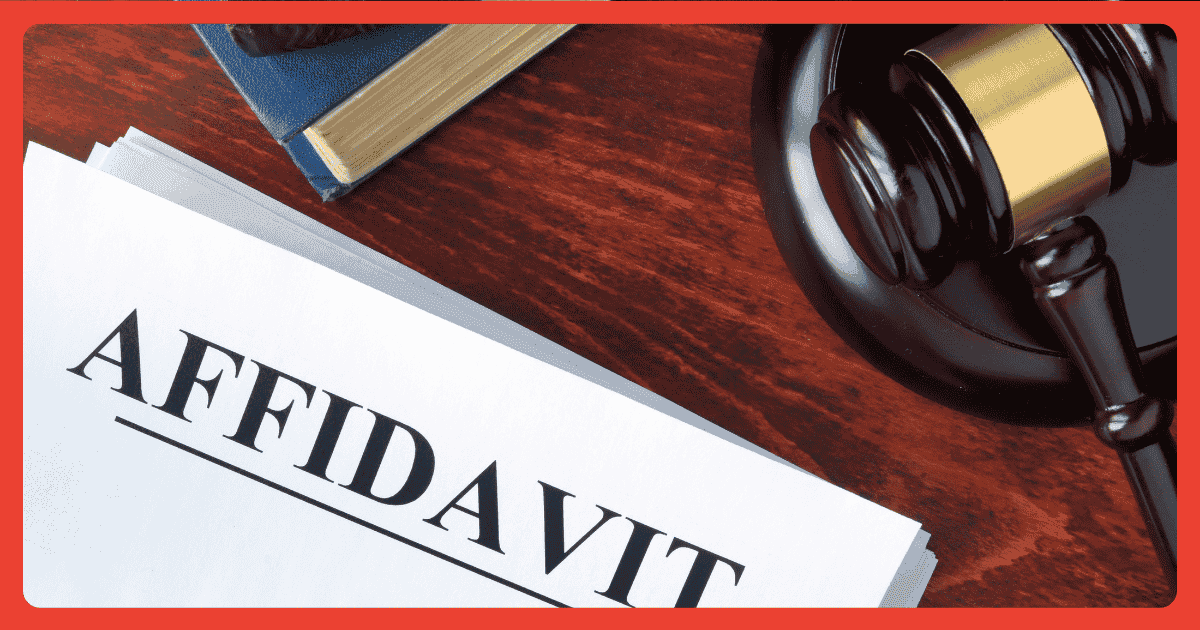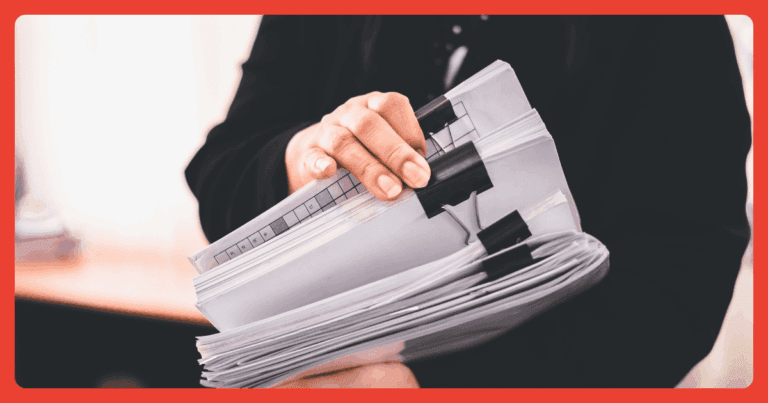
Table of Contents
If you’re a foreigner planning to legally marry in Thailand, the Affidavit of Freedom to Marry is the single most important document you will need to prepare. It is the official, sworn statement from your embassy that confirms to the Thai government that you are legally single and eligible to marry.
While the document itself is simple, preparing it correctly involves a mandatory, multi-step process that cannot be altered. This guide walks you through the entire journey, from your embassy appointment to the final legalized document ready for your marriage registration.
1. What Is an Embassy Affidavit and Why Do I Need It?
Thai law requires every foreigner to prove they are not already married in their home country. Since most countries do not issue an easy “single status certificate,” the internationally accepted solution is for you to make a sworn statement (an affidavit) at your embassy in Bangkok. A consular officer acts as a notary, witnesses your signature, and affixes an official seal.
This notarized affidavit becomes your legal proof of single status, but it’s only the first step in the chain of authentication.
👉 Related: Marriage in Thailand for Foreigners: Embassy & Legal Requirements
2. The Step-by-Step Process: From Embassy to Amphur
Follow these four steps in this exact order. Skipping or changing the sequence will result in your documents being rejected.
Step 1: Obtain the Notarized Affidavit at Your Embassy
Your first stop is your country’s embassy in Bangkok. You must book an appointment online in advance, often weeks ahead.
- What to Bring:
- Your original, valid passport.
- Proof of a previous divorce or the death of a spouse (i.e., your original Divorce Decree or a Death Certificate), if applicable.
- The embassy’s application form (often completed online beforehand).
- The consular fee (typically 1,500 – 5,000 THB, depending on the embassy).
- What Happens: You will sign the affidavit in front of a consular officer, who will then notarize it with an official stamp and signature. You will usually receive the notarized document the same day along with a certified copy of your passport.
💡 Pro Tip: If two foreigners are marrying each other, BOTH partners must complete this step at their respective embassies to get their own individual affidavits.

Need Certified or Legalized Translations for MFA or Embassy Use?
Our native translators and legalization team handle everything for you.
Get in Touch >
Step 2: Get a Certified Thai Translation
Your affidavit is in English (or another foreign language), but the Thai District Office (Amphur) only operates in Thai. Therefore, the next mandatory step is to have the affidavit professionally translated into Thai.
- Who Can Do It: This must be done by a professional, certified translator or a registered translation agency. A self-made translation will be rejected.
- What to Look For: The translation must include the translator’s name, signature, and official company seal on every page.
👉 Full guide: Top 10 Documents That Require Certified Translation in Thailand
Step 3: Legalize the Documents at the Ministry of Foreign Affairs (MFA)
This is the most crucial and often misunderstood step. The Thai District Office does not recognize your foreign embassy’s stamp directly. The MFA acts as the bridge.
- What You Submit: You must take BOTH your original notarized affidavit AND its certified Thai translation to the MFA Legalization Division at Chaeng Watthana in Bangkok.
- What Happens: The MFA officer will verify that your embassy’s consular seal is authentic and registered in their system. They will then affix their own official stamp to your documents, “legalizing” them for use within the Thai government.
👉 Full guide: How to Submit Documents at the MFA in Bangkok
Step 4: The Final Packet for the District Office (Amphur)
Once your documents have been legalized by the MFA, you have a complete, official packet that is ready for your marriage registration. This packet consists of:
- Your original notarized affidavit from the embassy.
- The certified Thai translation of the affidavit.
- …both of which now bear the official MFA legalization stamps.
This packet, along with your original passports, is what you will present at the District Office to legally register your marriage.
👉 Related: Marriage Registration in Thailand: Step-by-Step Guide
3. Timeline & Estimated Costs
Plan your time and budget accordingly. The process cannot be completed in a single day.
| Step | Estimated Time | Estimated Cost (THB) |
|---|---|---|
| Embassy Notarization | Half a day (with appointment) | 1,500 – 5,000 |
| Certified Translation | 1 – 2 business days | 600 – 1,000 per document |
| MFA Legalization | 3 – 5 business days (Standard Service) | 400 (per document + translation) |
| Total Estimated Time | 5 – 10 business days | |
4. Common Mistakes That Cause Delays
- Forgetting Divorce/Death Certificates: If you are divorced or widowed, you MUST bring the original legal proof to your embassy appointment. Forgetting this will stop the process before it starts.
- Trying to Skip the MFA: Taking your translated affidavit directly to the District Office is a guaranteed rejection. The MFA legalization step is mandatory.
- Using an Expired Affidavit: Most affidavits have a validity period of 3 to 6 months. If you wait too long after getting it, you will have to start the entire process over again.
- Not Booking Appointments: Both embassy and MFA visits can involve long waits. Book your embassy appointment well in advance and arrive at the MFA early in the morning.
Frequently Asked Questions (FAQs)
Can I get my Affidavit of Freedom to Marry in my home country?
Sometimes, but it’s more complicated. The document would need to be legalized in your home country (e.g., with an Apostille) and then stamped by the Royal Thai Embassy there. It is almost always faster, easier, and more reliable to get it directly from your embassy in Bangkok.
How long does the entire process from embassy to marriage registration take?
Realistically, plan for at least two full weeks (10 business days). This accounts for the embassy appointment, translation time, and standard MFA processing time. Any public holidays will add to this timeline.
Does my embassy handle the translation and MFA legalization for me?
No. Your embassy’s role ends once they have notarized your affidavit. You are responsible for the subsequent translation and MFA legalization steps.
Conclusion
Preparing your embassy affidavit is the most important administrative task you’ll undertake for your Thai marriage. The process is not difficult, but it is a rigid sequence: Embassy → Translation → MFA → Amphur. By following these steps correctly and giving yourself enough time, you can ensure your documents are perfectly prepared for your special day.

Need Certified or Legalized Translations for MFA or Embassy Use?
Our native translators and legalization team handle everything for you.
Get in Touch >
Share this post:
This post was last updated October 2025.







